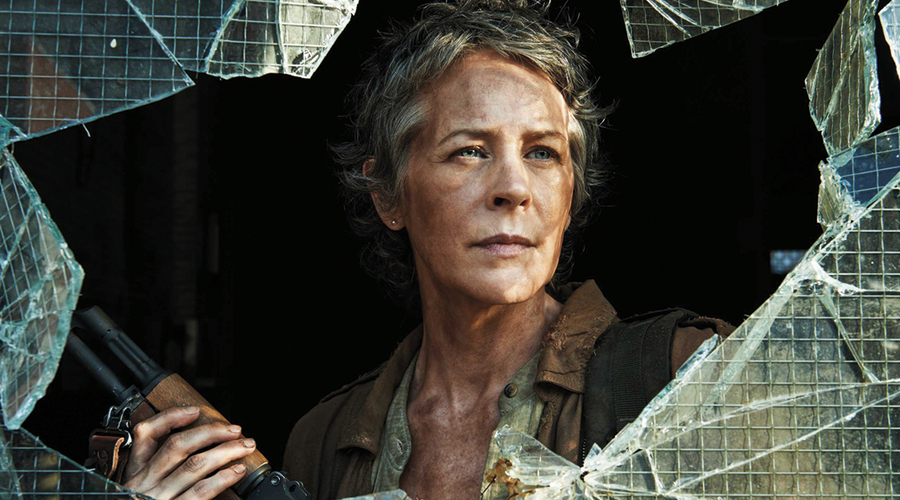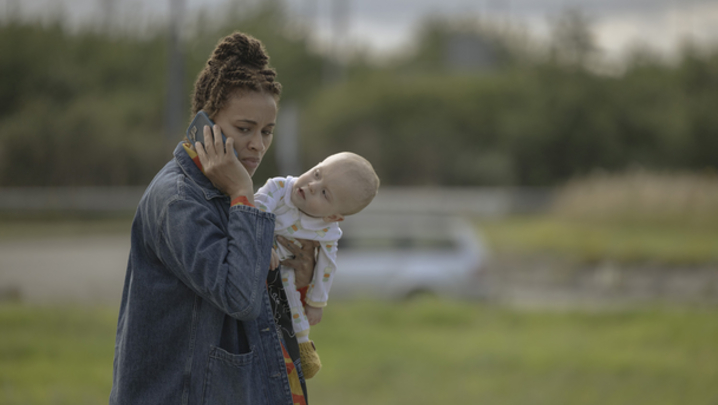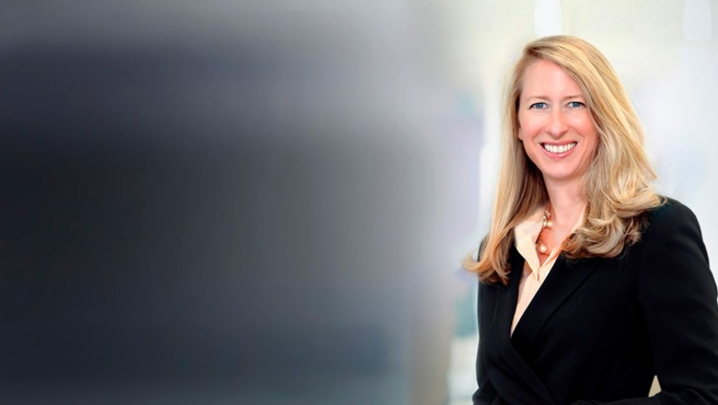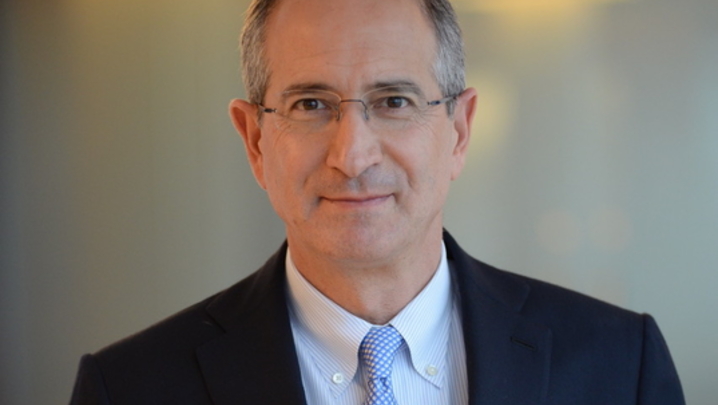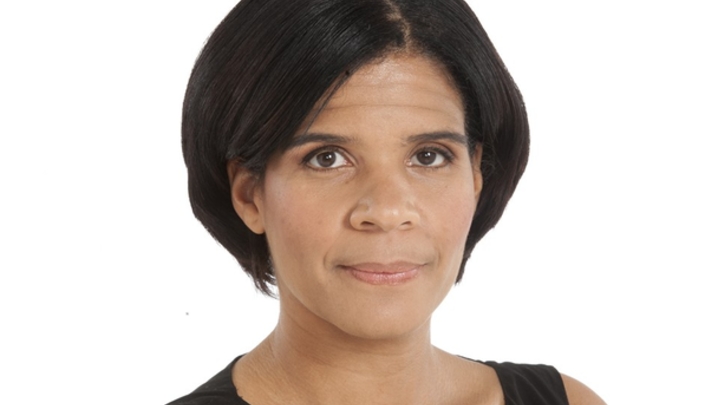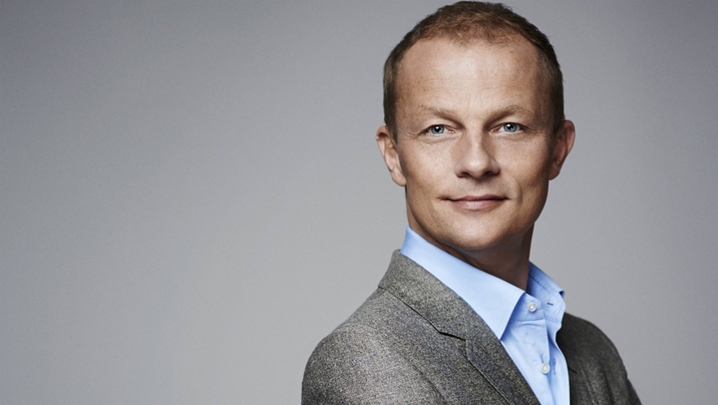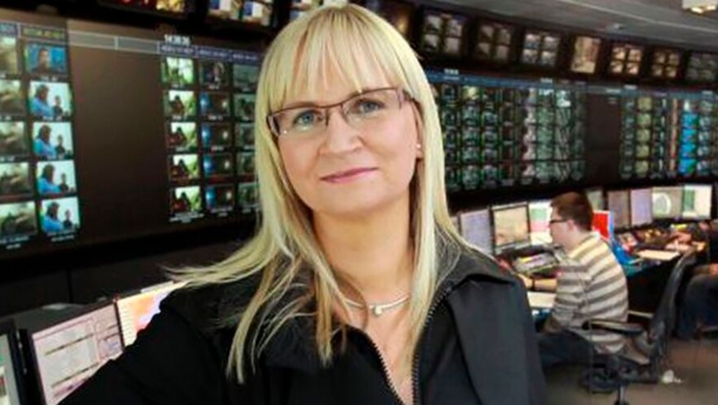Stuart Baxter tells Steve Clarke how his company has transformed itself into a global production and distribution powerhouse
Everyone in TV knows that UK production is thriving in markets across the world. What is less celebrated is the remarkable health of the home-grown distribution sector.
Of late, one company, in particular, has helped drive growth in this area. Entertainment One (eOne) is a studio with a global reach: it sells political drama Designated Survivor, Peppa Pig and The Walking Dead. In the past two years, distribution revenues have more than doubled to £225m.
In 2017, the company was ranked as Britain’s second-biggest distributor, beaten only by BBC Worldwide, according to Broadcast’s annual survey.
Stuart Baxter, previously an executive at Sony and Warner Bros, is President of international distribution at eOne. Since he joined the company four years ago, he has overseen a dramatic spurt in activity.
During this time, eOne has undergone a transformation, reconfiguring its entire content strategy. In January, the fêted Hollywood TV and film producer Mark Gordon was appointed eOne’s President and chief content officer for film, television and digital.
The move cemented a partnership formed in 2015, when eOne acquired 51% of The Mark Gordon Company. His relationship with eOne had already generated the ABC hit Designated Survivor and the movie Molly’s Game; eOne now owns his company outright.
The secret of eOne’s rise to prominence is that it backs high-quality shows, says the softly spoken and charming Baxter: “We have invested a lot more in content, ramping up our production business and development spend.”
He claims that he got into TV by accident, after starting out to be a civil engineer. “My maths and my design were fine but I couldn’t draw,” he recalls.
As eOne has beefed up the quality, the company has set about consolidating its sales and production activities across film, television and digital into a single studio operation.
“That’s a huge advantage. There are times when films are in the ascendancy with some players,” he says. “In the past, we had one sales person going out selling family content, and another person selling movies, while another was selling TV. That was grossly inefficient.”
From London, Baxter overseas a sales force of around 75; he has people working for him in Amsterdam, Beijing, Hong Kong, Los Angeles, London, Madrid, Munich, Sydney and Toronto.
He adds: “eOne started to shift its emphasis from movies to TV eight or nine years ago. It did it at the right time and bought its first two production companies. ”
When Baxter accepted eOne’s offer to work for the company in TV, the firm was best known for producing Canadian supernatural medical series Saving Hope (shown by NBC in the US) and police procedural Rookie Blue (shown by ABC in the US).
A turning point for eOne came when it signed a deal with US cable channel AMC in 2013 to distribute the latter’s scripted shows, including The Walking Dead. “We took a big risk doing the AMC deal,” he says. “We put an awful lot of money down to fund those shows, more than anybody else was prepared to do. Although the concern wasn’t financial, it was all about getting really good quality.”
Now that Mark Gordon is on board full time, the sky appears to be the limit for eOne’s TV ambitions. Key to the strategy are more US and international partnerships in both TV and film. These include Makeready, a venture with Brad Weston (The Revenant), Annapurna Pictures (Foxcatcher; American Hustle), and Steven Spielberg’s Amblin Partners. There’s also a new deal with Palomar, with which eOne is developing Gaddafi, created by Roberto Saviano, the writer of the successful drama Gomorrah.
In TV, it is developing Vicky Jones and Phoebe Waller-Bridge’s comedy-thriller Run, the duo’s first show together since the breakout hit Fleabag.
Sharp Objects, which eOne developed and produced, is due to air on HBO this summer. Based on the novel by Gillian Flynn (Gone Girl), the series stars Amy Adams and was directed by Jean-Marc Vallée (Big Little Lies).
“We are not disclosing the budget for Sharp Objects, but I can tell you its costs are comparable to a feature film. It’s an incredible show,” says Baxter. “Look, everybody wants the next Game of Thrones – something truly original. There was no show like it, but there’s an awful lot of poor imitations going on at the moment.”
To get successful TV shows off the ground [NOW, it is] all about packaging
This, of course, raises the question of how an independent such as eOne can hold its course as the boom in high-end drama series drives budgets ever higher.
In this respect, are the streaming services a curse or a blessing? “When Netflix does a deal with a Ryan Murphy [creator of Nip/Tuck] or a Shonda [Rhimes], it is building self-reliance. It used to be dependent on distributors. That’s reducing.
“I think [the streaming services] always need some shows to come from the market. But, at the same time, they will also deal with talent themselves. They’re pushing up budgets. Only so many people can afford to take bets of that size.
“Actually, we’re lucky. We moved early enough and, by making that a seedbed, we’re in that game where we, too, can make the big bets.”
Baxter, who initially struggled to find buyers for Breaking Bad when he ran Sony’s London-based sales business, believes stridently in the value of going the extra mile to ensure that every show maximises its potential.
“I read the script for Big Little Lies four years ago. When I eventually watched it, I couldn’t believe it was the same show. What Jean-Marc Vallée did with that was amazing. It’s the difference that packaging makes. When I read the script, they didn’t have Nicole Kidman or Reese Witherspoon on board.
“That’s what you have to do now to get successful TV shows off the ground. It’s all about packaging. To package, you’ve got to have somebody who’s really connected with the networks, with the studios and, frankly, with the agents.”
In other words, someone like Mark Gordon. “As soon as Mark came in, he had a look at all the projects at eOne. He goes: ‘There’s fabulous stuff in here but we need to do this and add this piece of talent,’” recalls Baxter.
The next phase is investing in UK and European producers. Already, eOne has signed a first-look deal with Emily Mortimer’s production company, King Bee.
But isn’t there a danger that the scripted bubble will burst? “I don’t think that too much TV drama is being made but there does need to be still more emphasis on quality,” he says.
“There is a danger, with such an influx of money, that some projects that aren’t quite complete yet, or haven’t been improved as much as they could be, are getting financed that – in harder times – wouldn’t be financed.”
Will this problem become worse? “I don’t think you make too many poor shows and not learn from those lessons. You either make it work and change, or you’ll go out of business.”

